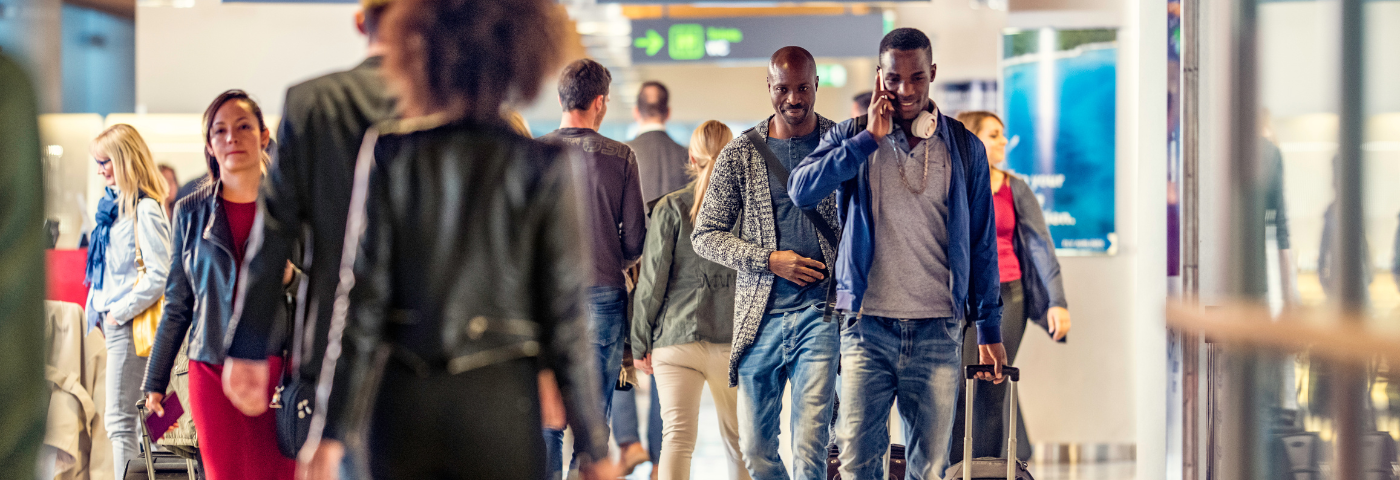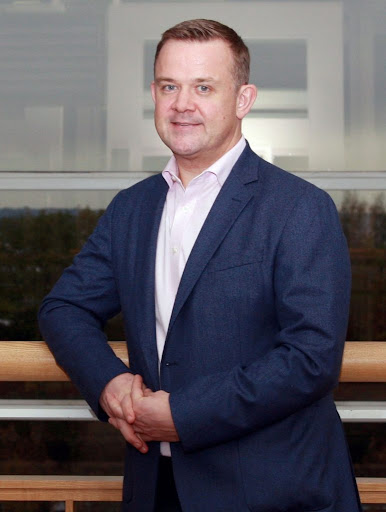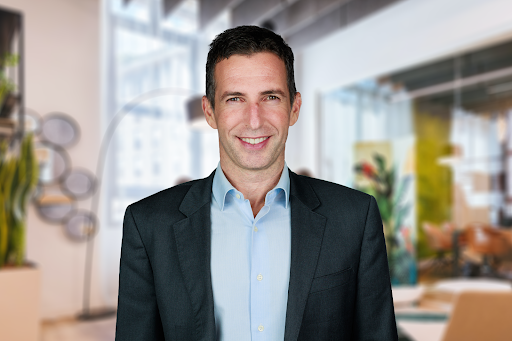Let’s throw back to a year ago when the prospect of travel returning to pre-pandemic days seemed to be an elusive possibility on the horizon. Plenty of fearless predictions foresaw how travel will be like when it returns.
However, not many, if at all, predicted the chaotic state that the travel industry would be facing.
Pilot and airport staff shortage, endless airport queues, cancelled flights, missed flights–these scenarios have sadly become all too familiar since the summer of discontent began.
When will the travel chaos end? What can airlines and travel companies do to attract and retain staff?
To get much needed answers, I spoke with two professionals who are experts in the field of aviation and airline recruitment.
Richard Stephenson OBE is the Chairman and Editor in Chief of AeroTime Group, a digital aviation news hub that provides recruitment and advisory services. He recently spoke at the Berlin Pilot Expo about aviation industry recruitment, and was a panellist at the Farnborough International Airshow, speaking about the future of advanced air mobility.
Rafael Moyano is the Managing Director of Rishworth Aviation, a global aviation recruitment group based in Auckland with offices in Singapore and Sweden. Rishworth Aviation provides staffing, recruitment, consulting, training and personnel leasing to aviation companies.
In your years of experience in the industry, have you seen this recruitment situation happen before?
Richard Stephenson (AeroTime): There is no doubt that this is unprecedented. Every sector goes through challenging times when they can’t fill vacancies, but I don’t think anyone has experienced this kind of recruitment challenge in aviation. In years gone by, aviation was one of the most attractive industries and competition was rife. It still is very attractive and there is still competition, but at the moment aviation companies around the world are scrambling around to find staff to fill vacancies right across their businesses.
Rafael Moyano (Rishworth Aviation): Covid-19 hit the aviation industry unlike any other crisis. All operators needed to implement massive lay-offs, and even though the market is now recovering, it hasn’t yet returned to pre-pandemic levels of staff.
While these numbers are still not where they once were, recruitment and call backs are not as quick or efficient as the industry needs to keep up with demand.
Many staff in the aviation sector have found jobs in other industries or decided to retire. Furthermore, pilot schools have not been able to provide the number of yearly candidates needed to cope with airline demands. For example, the US currently provides 7,000 pilots per year whereas airline demand is almost double, around 13,000 pilots.
As companies are still managing a lean workforce, the impact of employee leave (sick, medical, etc.) is further impacting the industry as back-up staff are not available.
When we look at the current situation, with cancellations, delays, and long queues in airports, we need to understand that it is not only the airlines who are struggling but also Ground Staff Handling companies, Airport Services companies (such as security and cleaning etc.) and Border Forces.
Do you think this is just a phase or something that may last years?
Richard Stephenson (AeroTime): My main concern is that it will last longer than people realise. It’s not going to suddenly change at the end of the busy summer season.
The problem is that pilots are in big demand and short supply. You can’t just rush people through pilot school to get them online, but it can take years to get people into the flight deck.
You can see some major estimations being made by the aircraft manufacturers about the number of pilots needed in the next 20 years and my big question is ‘where are they coming from?’ For instance, Boeing had an estimated outlook that global aviation will need 602,000 pilots by year 2040.
I think certain aspects of recruitment will normalise in the coming years, but the pilot shortage is going to be a challenge for the foreseeable future and the industry needs to act.
Rafael Moyano (Rishworth Aviation): It is anticipated that it will take several years to regain balance in the aviation sector.
Attend World Travel Market London 2022 to learn more about hot industry topics including talent retention and recruitment – secure your spot today!
A former Virgin Atlantic employee said in a BBC interview that “it would be like going back to an ex” and that they are not tempted in the slightest to return. What’s your advice to aviation companies – how can they entice former employees to return and how to keep the current crew happy?
Richard Stephenson (AeroTime): The covid period was a disaster for aviation in so many ways. Many, many people lost their jobs in the aviation sector, and even though some of them have been dedicated to the sector for many years, they do not want to go back. Many feel that they were not treated well during the challenge times and therefore will not go back.
However, I would say to the airlines and airports, they need to regain some of that lost talent and experience and they need to work out how to do that.
Within the AeroTime Recruitment agency we have been running online roadshows for companies who want to re-engage and anyone who is not currently doing that should really consider doing so.
Rafael Moyano (Rishworth Aviation): Overall, it’s important to anticipate the needs beyond what they see and have a realistic and well formulated resourcing plan. To hire pilots is not a quick process. Candidates are often coming from overseas which requires VISA and work permits, in addition to all the standard validations. Also, we are likely to see more turnover so recruitment will be a constant and not a one-off exercise. In our recent survey of over 6,500 pilots, 83% said they were open to hearing about new job opportunities.
For former employees – As well as salaries, pilots are placing great importance on non-monetary benefits and flexibility. This is a vital consideration for them when deciding whether to take a new role, as they seek to improve their work-life balance.
In our recent survey, two thirds of pilots indicated that they wanted a better work-life balance as many continue to re-evaluate their careers
Although 83% of pilots would be open to a new role, the majority aren’t actively looking (56%) and therefore not engaging with traditional recruitment channels, such as job boards, company careers pages and social media.
A strong employee value proposition (EVP) is central to better hiring outcomes in what is a tough candidate-led market. By reviewing and enhancing their employer brand identities and adopting a strategic, multi-channel recruitment approach, airlines will be able to target the ‘hidden’ pool of talent and can stand out as an employer of choice.
For current employees – As mentioned above, retention is a serious concern for many airlines. Intensifying communication with employees, especially flight crews, is a must.
Internal communication with flight crews is difficult in normal circumstances as they do not have regular and natural exchanges with their superiors. They’re out on their own, with often very little or no feedback from management. Recognition of a job well done goes a long way and is often appreciated.
US airlines are considering cutting training flying hour requirements and dropping other requirements to address pilot shortage. How can airlines / aviation industry meet the challenge of striking the balance of recruiting pilots and staff fast enough whilst adhering to safety standards?
Richard Stephenson (AeroTime): There is no substitute for safety in aviation and nobody can cut those corners. We have seen airlines reducing the number of minimum hours being required for some roles, but I have not seen anything that would compromise safety. Safety is number one and anyone working in aviation knows that. Nobody would expect to land a role they are not qualified to perform. The challenge for airlines is to ensure that on-going training and support programmes are appropriately invested in for the crew they employ.
At the Pilot Expo in Berlin earlier this year, I spoke about the need for the industry to take this challenge seriously and for airlines to tackle both the short and long term issue of staff shortages. I’ve seen more and more airlines starting their own training schools or announcing cooperations with existing schools and this will go some way towards tackling the issue, but it will not solve it on its own. Much more needs to be done and airlines have a responsibility to introduce new programmes to train cadets and our pilots of tomorrow to prevent the challenge getting any worse.
Rafael Moyano (Rishworth Aviation): Most airlines are very strict when they look at more flexible arrangements and working with recruitment agencies. However, working with agencies can help them gain agility and reach a wider group of candidates, as well as access to experts in aviation to speed up their hiring processes without sacrificing a thorough recruitment process.
The pandemic has certainly changed people’s priorities and needs. What do employees / job seekers want now that are different from previous pre-pandemic years?
Richard Stephenson (AeroTime): We all hope that the covid pandemic was a once in a lifetime experience, however we know that it might not be and I’ve heard from people who used to work in aviation who did not want to return because they are concerned that the job security they used to have no longer exists.
My personal view is that job security is very different today to what it was 20 or 30 years ago and that we must be more flexible and adaptable. Job seekers want to know that their employer will do all that should another global situation arise that closes down aviation – and unfortunately, this is not a guarantee anyone can provide.
The best thing we can all do now, is to use our experience and knowledge and help get aviation back to where it should be, fully operational and growing as the demand to travel continues to grow.
Rafael Moyano (Rishworth Aviation): As mentioned, we have certainly seen a shift in attitudes towards improved work-life balance with 64% of pilots saying that work-life balance is one of the most important factors when considering a job.
A choice of roster patterns that would allow them sufficient time off (53%) was also deemed crucial, as was the time spent commuting (50%), further reinforcing their desire to prioritise family, health and wellbeing. Where the airline was based, and its financial stability were other influential factors too.





